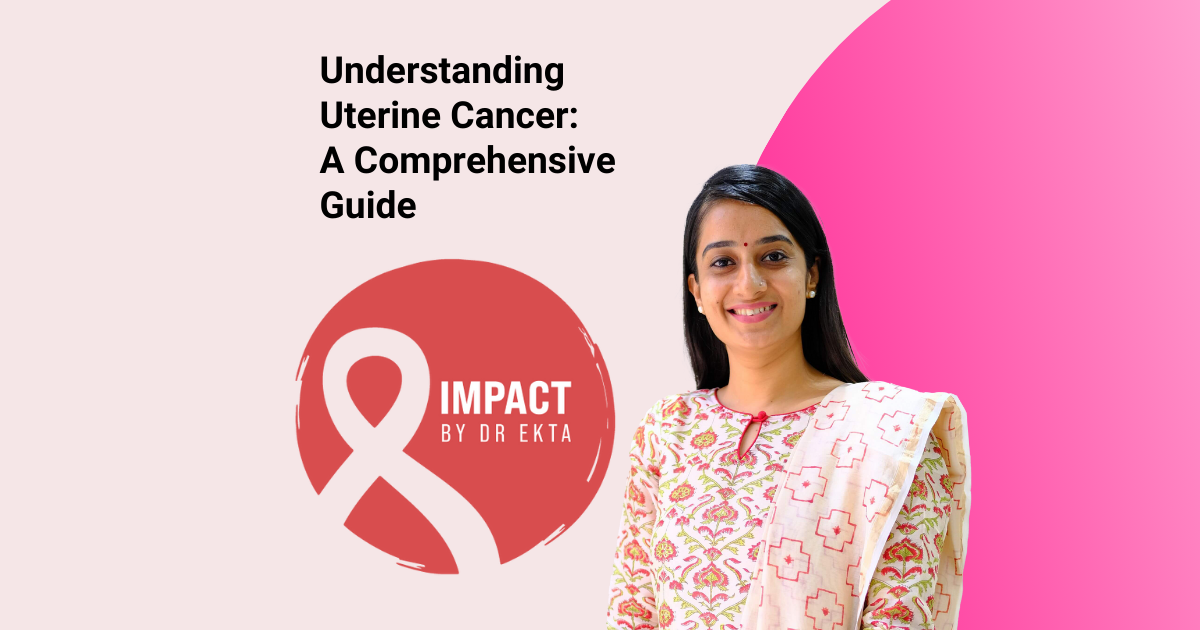Hello everyone,
Greetings, I’m honored to guide you through the intricate landscape of uterine cancer, a topic that resonates deeply with women around the globe. Today, let’s embark on a journey together—one of exploration and enlightenment—as we delve into the depths of this disease.
Uterine cancer, also known as endometrial cancer, is not just a medical condition; it’s a profound intersection of biology, genetics, and individual health. Understanding its origins is akin to unraveling a mystery—one that holds profound implications for countless lives.
As we navigate this journey, we’ll navigate through the complex web of factors that contribute to the development of uterine cancer. From genetic predispositions to hormonal imbalances, from the impact of obesity to the influence of environmental factors, each piece of the puzzle offers insight into the disease’s genesis. By shedding light on these interconnected elements, we empower individuals with knowledge—knowledge that can inform choices and promote proactive health management.
What Causes Uterine Cancer?
Uterine cancer, also known as endometrial cancer, arises in the lining of the uterus, but the journey from a healthy uterine lining to cancerous growth is a complex one. While we’ve identified several risk factors, such as genetic predisposition, hormonal imbalances, obesity, and exposure to certain environmental factors, the exact interplay of these factors remains an area of ongoing research. By shedding light on these potential triggers, we can empower individuals to make informed choices about their health and well-being.
Recognizing Symptoms:
One of the greatest challenges in managing uterine cancer lies in its ability to masquerade as benign conditions in its early stages. However, as the disease progresses, it often reveals its presence through subtle yet significant symptoms. These may include abnormal vaginal bleeding, pelvic pain or discomfort, changes in urinary or bowel habits, and unexplained weight loss. While these symptoms may initially seem innocuous, they serve as vital clues urging us to seek medical attention for further evaluation.
Getting Diagnosed:
Diagnosing uterine cancer requires a multidimensional approach, involving a combination of physical examinations, imaging tests such as ultrasounds, MRIs, or CT scans, and definitive tissue sampling through biopsies. These diagnostic tools not only confirm the presence of cancer but also provide crucial insights into its stage and extent of spread, guiding our subsequent treatment decisions. It’s important to emphasize the significance of timely diagnosis in ensuring optimal outcomes for patients.
Treatment Options:
The treatment landscape for uterine cancer is as diverse as the individuals it affects, reflecting the complexity of the disease and the unique needs of each patient. Surgery, often in the form of a hysterectomy (removal of the uterus), remains a cornerstone for localized disease, offering the potential for cure. However, for advanced or recurrent cases, a more comprehensive approach is often required, incorporating adjuvant therapies such as radiation, chemotherapy, or hormone therapy. Each treatment modality carries its own set of benefits and considerations, necessitating a collaborative approach between patients and their healthcare providers to determine the most suitable course of action.
Why Early Detection Matters:
Early detection of uterine cancer is paramount, as it significantly improves treatment outcomes and enhances the chances of survival. By fostering awareness of the symptoms associated with uterine cancer and encouraging regular screenings for high-risk individuals, we can empower individuals to take proactive steps in safeguarding their health.
In Conclusion:
Uterine cancer is a multifaceted disease that demands our attention and understanding. By unraveling its complexities, recognizing its symptoms, and exploring the array of treatment options available, we equip ourselves with the knowledge and tools necessary to confront this formidable foe. Let us continue to champion awareness, advocate for early detection, and support one another on the journey towards better health.
Thank you for joining me on this exploration,
Dr. Ekta Vala

